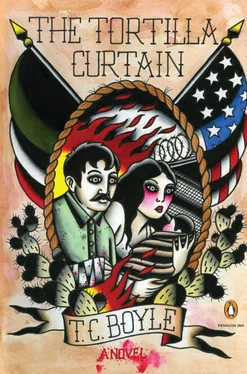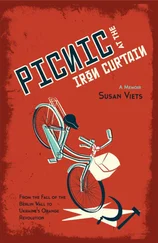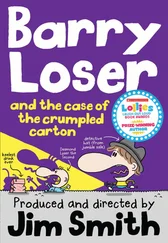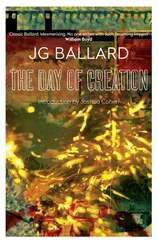T. Boyle - The Tortilla Curtain
Здесь есть возможность читать онлайн «T. Boyle - The Tortilla Curtain» весь текст электронной книги совершенно бесплатно (целиком полную версию без сокращений). В некоторых случаях можно слушать аудио, скачать через торрент в формате fb2 и присутствует краткое содержание. Год выпуска: 2011, Издательство: Penguin Books, Жанр: Современная проза, на английском языке. Описание произведения, (предисловие) а так же отзывы посетителей доступны на портале библиотеки ЛибКат.
- Название:The Tortilla Curtain
- Автор:
- Издательство:Penguin Books
- Жанр:
- Год:2011
- ISBN:нет данных
- Рейтинг книги:4 / 5. Голосов: 1
-
Избранное:Добавить в избранное
- Отзывы:
-
Ваша оценка:
- 80
- 1
- 2
- 3
- 4
- 5
The Tortilla Curtain: краткое содержание, описание и аннотация
Предлагаем к чтению аннотацию, описание, краткое содержание или предисловие (зависит от того, что написал сам автор книги «The Tortilla Curtain»). Если вы не нашли необходимую информацию о книге — напишите в комментариях, мы постараемся отыскать её.
The Tortilla Curtain — читать онлайн бесплатно полную книгу (весь текст) целиком
Ниже представлен текст книги, разбитый по страницам. Система сохранения места последней прочитанной страницы, позволяет с удобством читать онлайн бесплатно книгу «The Tortilla Curtain», без необходимости каждый раз заново искать на чём Вы остановились. Поставьте закладку, и сможете в любой момент перейти на страницу, на которой закончили чтение.
Интервал:
Закладка:
There are always surprises. Life may be inveterately grim and the surprises disproportionately unpleasant, but it would be hardly worth living if there were no exceptions, no sunny days, no acts of random kindness. The farmer motioned him to the phone, and on the other end of the line there was an angelic voice, the sweet lilting gently lisping voice of Graciela Herrera, a _chicana__ from a town five miles away, talking to him in the language of their ancestors. Graciela picked him up in her bright yellow Volkswagen and dropped him off at the bus station, where she translated for the ticket agent so he could purchase his ticket. Cándido wanted to raise a shrine to her. He kissed her ricá kissed hfingertips and gave her the only thing he had to give: the laminated picture card of the Virgin of Guadalupe he carried for luck.
In Canoga Park, Cándido was able to find Hilario's cousin with no problem-the town was like a Mexican village writ large-and he got work right away, with an English-speaking boss who managed half a dozen gardening crews of three men each. The cousin's name was Arturo and he showed Cándido what to do-it was nothing: pull the cord on the mower, walk behind the airblast of the blower, cultivate the flowerbeds and trim the shrubs-while they both awaited news of Hilario. Weeks went by. Cándido shared a place off Shoup in Woodland Hills with six other men and the close quarters and the dirt and the foul smells reminded him of his first stay in Los Angeles, in the filth of Echo Park. He sent money home and wired Resurrecci6n that he'd be home by Christmas. News came finally that Hilario was back in Guerrero, deported from Oregon and stripped of everything he owned by the Federal Judicial Police the minute he reentered Mexico.
Things were good for a while. Cándido was making a hundred and sixty dollars a week, spending two hundred a month on rent, another hundred on food, beer, the occasional movie, and sending the rest home. Arturo became a good friend. The work was like play compared to struggling through the mud of the potato fields like a human burro or picking lemons in hundred-and-twenty-degree heat. He began to relax. Began to feel at home. Wagontire, Oregon, was a distant memory.
And then the roof fell in. Someone tipped off La Migra and they made a sweep of the entire area, six o'clock in the morning, snatching people off the street, from in front of the 7-Eleven and the bus stop. A hundred men and women were lined up on the sidewalk, even a few children, staring at their feet while the puke-green buses from the Immigration pulled up to the curb to take them one-way to Tijuana, the doors locked, the windows barred, all their poor possessions-the eternally rolling TVs, the mattresses on the floor, their clothes and cooking things-ieft behind in their apartments for the scavengers and the garbagemen.
Six a. m. Cándido was among the throng, dressed for work, a hundred and ten dollars in his string bag under the sink in the apartment behind him, the darkness broken only by the ugly yellow light of the streetlamps and the harsh glowing eyes of the buses. It was cold. A woman was crying softly beside him; a man argued with one of the Spanish-speaking Immigration agents, a hard high nagging whine: “My things,” he said, over and over, “what about my things?” Cándido had just left his apartment to wait out front for Arturo to swing by for him in the boss's pickup when _La Migra__ nailed him, and now he stood in line with all the hopeless others. Eight Immigration agents, two of them female, worked their way down the line of Mexicans, one by one, and the Mexicans, as if they were shackled together, joined at the elbow, rooted to the pavement, never thought to run or flex a muscle or even move. It was the Mexican way: acquiesce, accept. Things would change, sure they would, but only if God willed it.
Cándido was listening to the woman cry softly beside him and thinking about that fatalism, that acquiescence, the inability of his people to act in the face of authority, right or wrong, good or bad, when a voice cried out in his head: _Run! Run now, while the fat-faced overfed__ pendejo _from the Immigration is still five people up the line with his flashlight and his pen and his clipboard and the green-eyed bitch behind him. Run!__
He broke for the line of pepper trees across the street, and seeing him run, two other men broke from the line and fled with him, the whole _macho__ corps of the Immigration crying out in unison anhináin unisond flowing toward them in a wave. “Stop!” they shouted. “You're under arrest!”-things like that, the words of English every Mexican knew-but Cándido and the two men who had broken with him didn't stop. They went across the road and into the trees, struggling up the refuse-choked bank to the freeway fence, and then, with _La Migra__ right behind them, they went up and over the fence and onto the shoulder of the freeway.
The cars streamed by in a rush, even at this hour. Four lanes in each direction, the torrent of headlights, sixty-five and seventy miles an hour: suicide. Cándido shot a glance at the two men beside him-both young and scared-and then he began to jog up the shoulder, against the traffic, looking to make it to the next exit and disappear in the bushes, no thought but that. The two men-they were boys really, teenagers-followed his lead and the three of them ran half a mile or more, two hard-nosed men from the Immigration flinging themselves up the shoulder behind them, the traffic raging, thundering in their ears, and when they came in sight of the exit they saw that _La Migra__ had anticipated them and stationed a green van on the shoulder ahead. The boys were frantic, their breathing as harsh as the ragged roaring whine of the engines as the headlights picked them out and the first of the police sirens tore at the air. Was it worth dying for this? Half the people on those buses would be back in a day, back in forty-eight hours, a week. It wasn't worth it. It wasn't.
Cándido would never forgive himself for what happened next. He was the one, he should have known, and they were only boys, scared and directionless. It wasn't worth it, but when the agents came panting up to them, their faces contorted and ugly with their shouts and threats, something uncoiled inside of him and he sprang out into the traffic like a cornered rabbit leaping from a cliff to avoid the dogs. The boys followed him, both of them, and they gave up their lives. All he could remember was the shrieking of the brakes and the blare of the horns and then the sound of all the glass in the world shattering. Pulp, that's what those boys were-they were nothing forever-and they could have been back in forty-eight hours. The first boy went down like a piston, torn off his legs at the hip, down and gone, and the second made it nearly to Cándido in the third lane over when he was flung into the air in one whole pounded piece. The fourth lane was free and Cándido was across it while the apocalypse of twisted metal and skating cars blasted the world around him till even the traffic across the divider was stopped dead in horror. He climbed the divider, walked to the far side on melting legs, vaulted the fence and became one with the shadows.
And after that? After that the trauma drove him from yard to yard, from green strip to green strip, and finally up over the dry Valley-side swell of Topanga Canyon and into the cleft of the creekbed. He bought food and two pints of brandy with the money in his pockets and he lay by the trickling creek for seven days, turning the horror over in his mind. He watched the trees move in the wind. He watched the ground squirrels, the birds, watched light shine through the thin transparent wings of the butterflies, and he thought: Why can't the world be like this? Then he picked himself up and went home to Resurrección.
That was the first time he'd seen the canyon, and now he was here again, feeling good, working, protecting América from all that was out there. His accident had been bad, nearly fatal, but si _Dios quiere__ he would be whole again, or nearly whole, and he understood that a man who had crossed eight lanes of freeway was like the Lord who walked on the waters, and that no man could expect that kind of grace to descend on him more than once in a lifetime. And so he worked for Al Lopez and painted till nearly ten at night aen án at nighnd then Al Lopez dropped him off at the darkened labor exchange, fifty dollars richer.
Читать дальшеИнтервал:
Закладка:
Похожие книги на «The Tortilla Curtain»
Представляем Вашему вниманию похожие книги на «The Tortilla Curtain» списком для выбора. Мы отобрали схожую по названию и смыслу литературу в надежде предоставить читателям больше вариантов отыскать новые, интересные, ещё непрочитанные произведения.
Обсуждение, отзывы о книге «The Tortilla Curtain» и просто собственные мнения читателей. Оставьте ваши комментарии, напишите, что Вы думаете о произведении, его смысле или главных героях. Укажите что конкретно понравилось, а что нет, и почему Вы так считаете.












